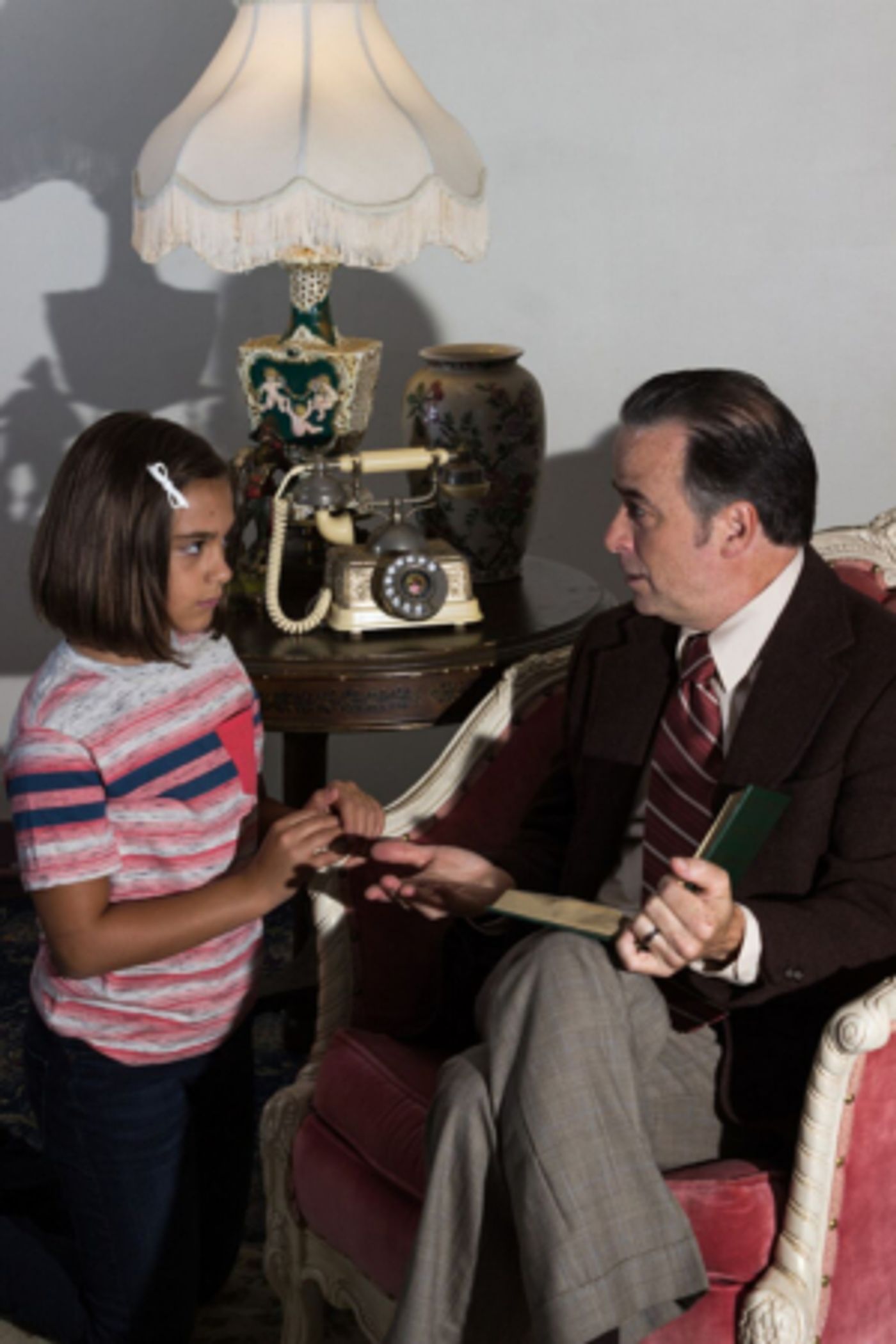Review: FUN HOME Serves as a Beacon, Outlet, Refuge

Every family has its secrets, its lies, its loves. In the Bechdel's home, secrets of sexuality and queerness transcended a generation but could never be discussed. Welcome to Fun Home, a look inside the family life of Alison Bechdel, a lesbian cartoonist whose gay father operated a funeral home and taught English in their small Pennsylvanian town before committing suicide soon after learning of his daughter's sexual orientation. (Try advertising that on a radio spot!)
The musical, though it may sound a bit hard to believe, is a true story about Alison. The real life Alison Bechdel first used her skills as a cartoonist to create a memoir in the form of a graphic novel in 2006. It was later adapted into the 2015 Tony Award winning Best Musical, with the same name.
As the Pittsburgh regional premiere, Front Porch Theatricals' production took up more than dungaree straps on its shoulders when creating this work. Although acting talent shined in this production, there lacked cohesion amongst the storytelling in direction and scenic design.
Staying somewhat true to the in-the-round staging used in the Broadway production, Front Porch Theatricals used the thrust space of the New Hazlett Theater to create a production that could have multiple different vantage points. With that came the challenge of staging and scenic design that could be seen up close and from almost any angle.
The first character to enter the stage is Alison, played by DREW LEIGH WILLIAMS. She walks to her drawing desk center stage and can be seen struggling to draw, gnawing at her pencil for inspiration. A bit of writer's block is relieved when she begins going through a box of her father's artifacts.
As Alison begins remembering her past, the stage comes alive with characters and a corkboard that was hanging behind Alison raises to join a half ring of other corkboards lining the top of the stage. The corkboards, all nearly empty, are a missed opportunity for scenic design. They serve more as a distraction than a set piece that could have been projected on or used in different ways.
The scenes continue to unfold inside the Bechdel's house. Their house is supposed to be ornate and like a museum because Alison's father Bruce is an avid house restorer. With a visitor from the local historical society is on their way to see the restoration, the family tidies up the house in "Welcome to Our House on Maple Avenue." My confusion comes in when, at the end of the song, almost nothing has changed scenically, and the furniture looks like that used in a first apartment.
The scenic design improves throughout the production, but its confusing and mismatched beginning leaves a lingering memory.
Alison continues to remember events of her childhood and freshman year at college. The storyline bounces between them and the present, as Alison continues being inspired, drawing and captioning events she is remembering for her graphic novel.
Small Alison, played by Livia Rocco, steals the show. She is young and independent, giving pushback to her father when he tries to dress her in girly clothing. Ms. Rocco's small physique bursts with talent when she is on stage, and she gives a powerful kick to the showstopper "Ring of Keys."
Medium Alison, played by Nuala Cleary, is the college-aged Alison. When she leaves for school her freshman year, her inner curiosities about her own queerness pique, and she discovers that she is a lesbian. Needing to tell her parents of her newfound self, Alison writes home, only to elicit a muted and dismissive response from her parents. The irony of it all being that her father is a gay man who has been having affairs with men for years, yet he cannot accept that fact or the fact that his daughter is like him in that way.
Ms. Williams channels her courage and confrontation in "Telephone Wire." Although she has been on stage almost the entire time, as an onlooker to her own memories, Ms. Williams' Alison becomes part of the narrative in this song. Long black lines blur the narrative from the memory, as Alison grapples with her past. She longs for understanding and acceptance, but she is instead never afforded that right. By the end, Alison is able to use her memories and her past as a force for inspiration.
The premise of Fun Home is not easily describable. As I mentioned above, it wouldn't exactly be easy to squeeze this into a radio segment without audiences dismissing the story as outlandish; but it is true, and it is a story about a real family.
The show is filled with many touching moments that align with the need to be loved and accepted. A quote from the show is "chaos never happens if it's never seen." We can choose to hide ourselves, to sweep something under the rug because it's easier than confronting the truth. But Fun Home allows for chaos; it allows for representation; it allows for conversations that can lead to deeper understanding.
The show is not easy to produce for a multitude of factors, but Front Porch Theatricals invite audiences to "Come to the Fun Home." In line with their mission, Front Porch Theatricals produced a meaningful musical, and as the Pittsburgh regional premiere, this production serves as a beacon, an outlet, and a refuge for the entire community.
To see or not to see score: 6/9; Moderately Recommended Show
Photo by: Marnie Quick
Reader Reviews
Videos

